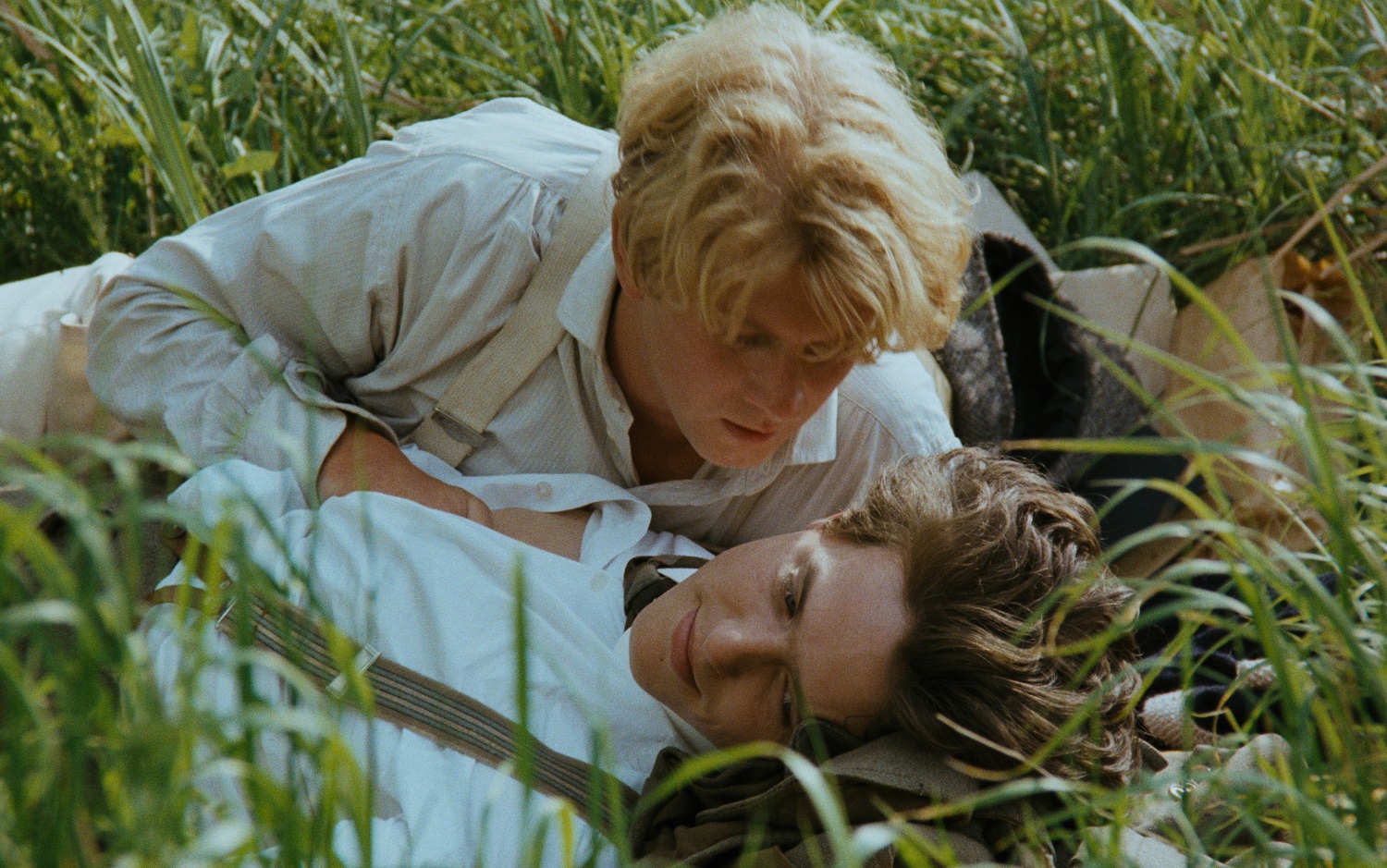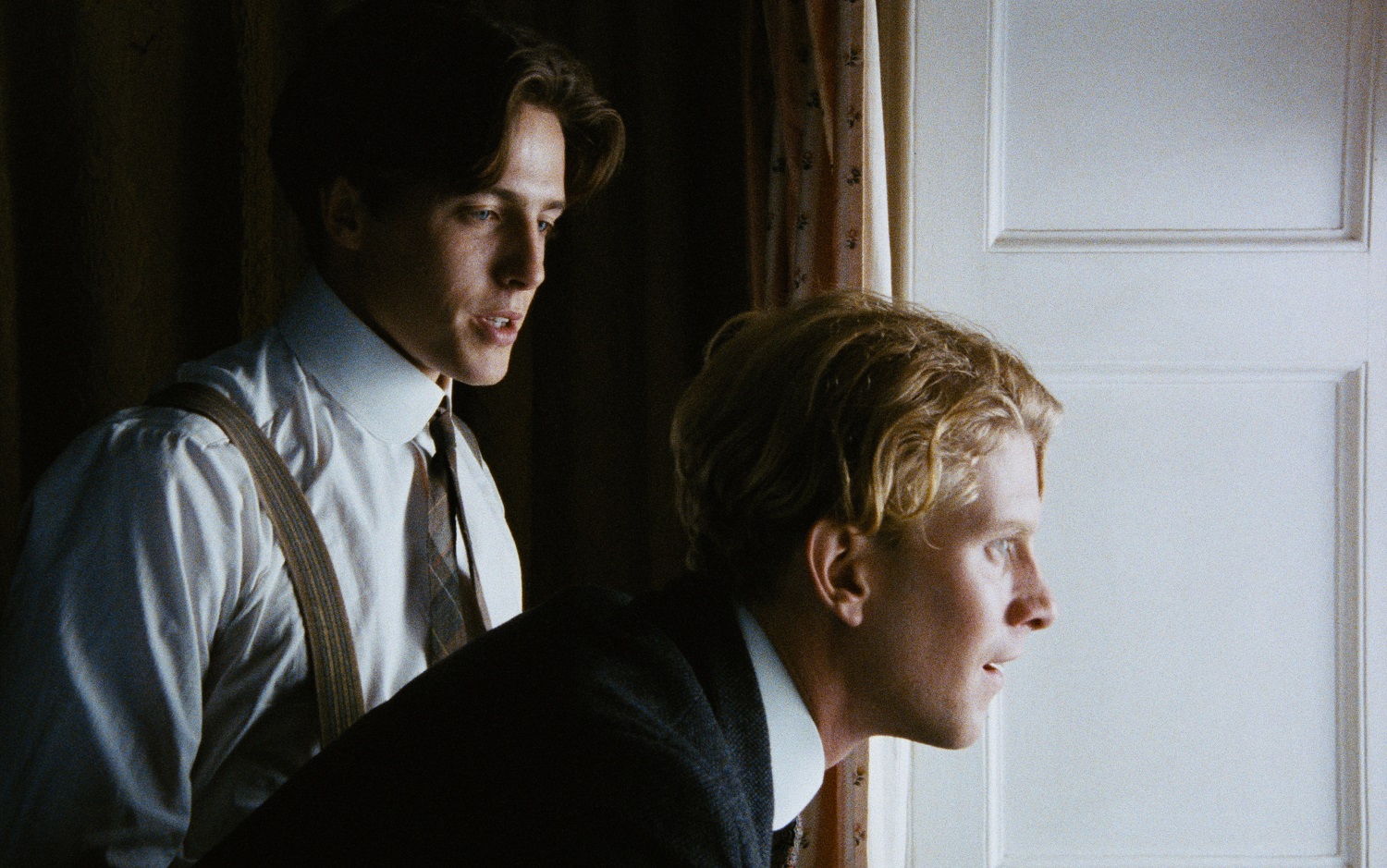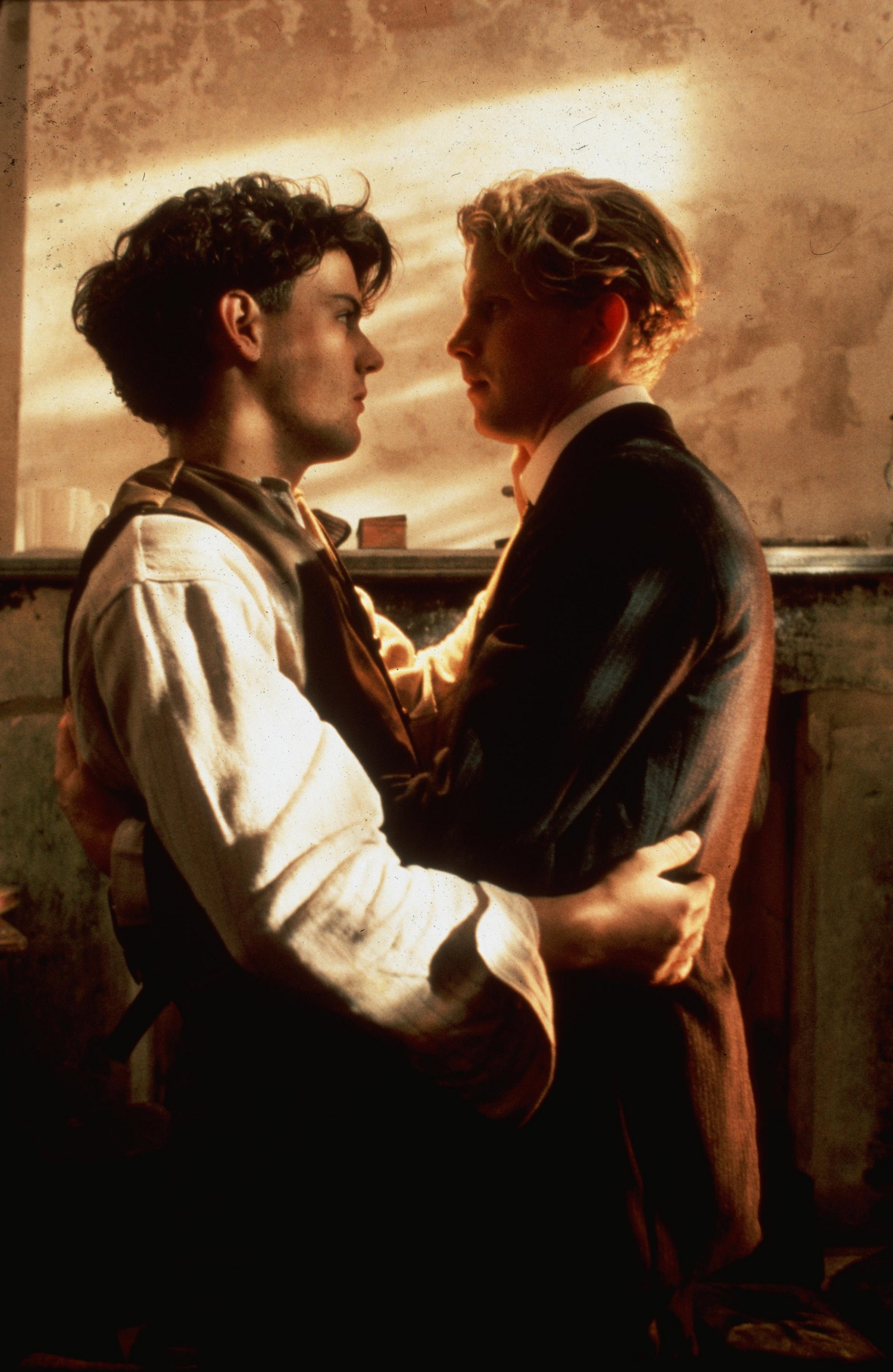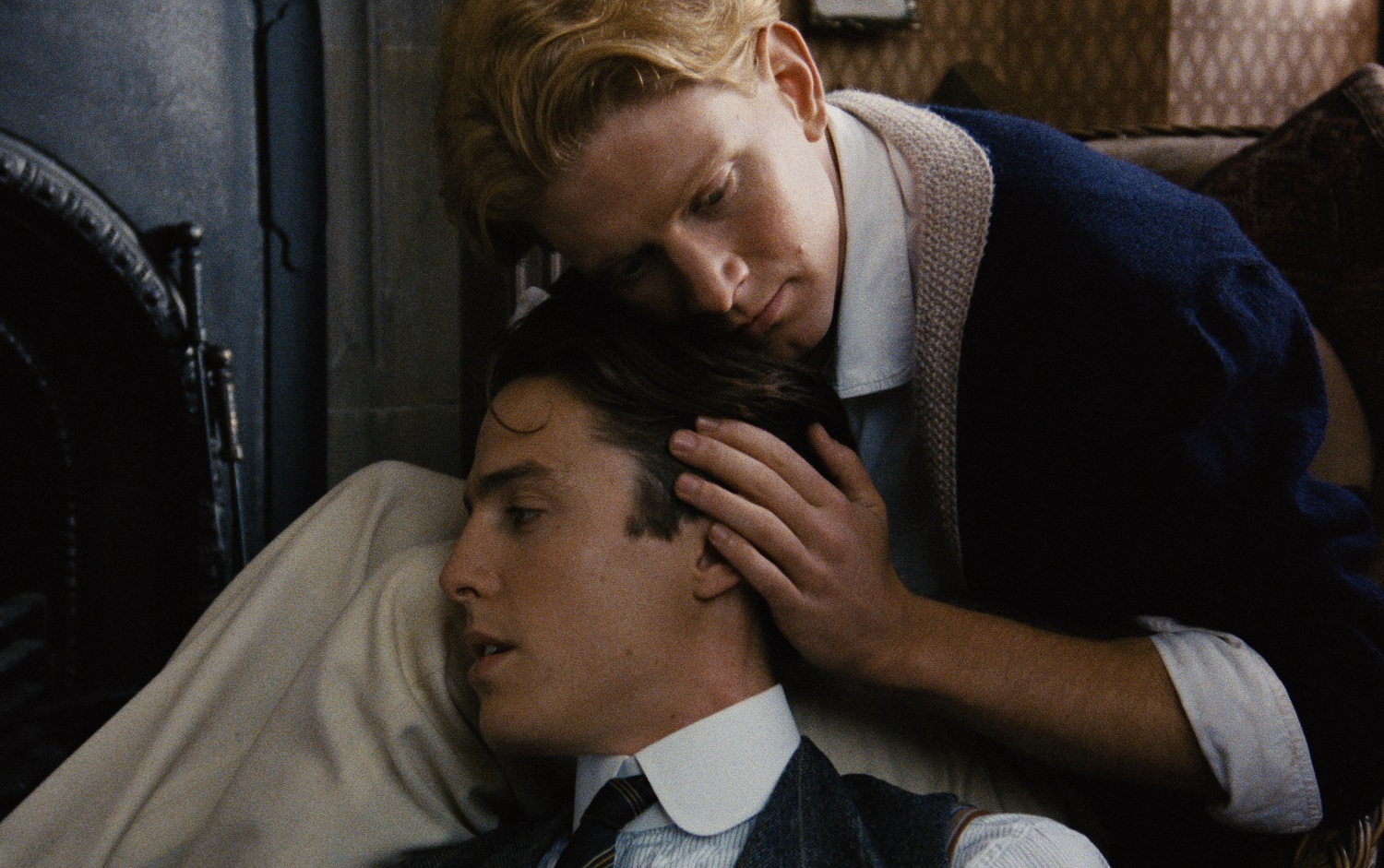Interview | ‘Maurice’ star James Wilby talks about the lasting effect of the classic movie
'Maurice' has been restored and re-released
By Steve Brown

Back in 1987, Merchant Ivory – a company created and run by two gay men who lived together for over 40 years – adapted one of EM Forster’s ‘lesser-known’ works for the screen.
Maurice was ground-breaking at the time, particularly for being a gay movie with a happy ending. It launched the careers of Hugh Grant, who played closeted Clive, and James Wilby as Maurice, who was tormented by the life he longed to lead.
Following the success of Call Me By Your Name – which Maurice director and screenwriter James Ivory also wrote – the film has been re-released in cinemas across the UK after having undergone a digital overhaul.
Attitude exclusively caught up with actor James Wilby, who returns to revisit the Edwardian landscape of forbidden love once more.
Can you remember how such a iconic role first came into your life?
What was amazing was that Julian Sands, who starred in the Merchant Ivory film of A Room With A View, was set to play Maurice.
I went up for an interview, not for one of the three main characters – not Clive or Scudder, just somebody at Cambridge.
Apparently Jim Ivory said to the casting director Celestia Fox, ‘No we can’t have him because he’s blond and tall like Julian’.
So I was sort of written out. And then Julian Sands backed out – I don’t know why – and quite close to filming, about two or three weeks before principal photography, and they remembered the tall blond guy who looked a bit like Julian.
And now, of course, I was eligible again because he wasn’t going to be in it.
How did you prepare for the role?
I knew Hugh Grant, for various reasons, and we were able to quietly get together. He was already cast as Clive.
I was auditioning with him, because they wanted to see the two of us together. So we got together the night before and went through the whole thing.
And that makes a huge difference, it’s a massive advantage. And I got the part!

Were there any reservations about you playing a gay part, given that it was the late 1980s?
Well not for me. I think if you’re an actor you should be interested in playing anybody and everybody.
If I was asked to play Hitler, I’d say yes like a shot. No, it didn’t occur to me. No.
I think it was a good thing in [the original period setting of] Maurice, in the sense where there wasn’t a gay community where there was a gay way – not that I’m saying there’s a gay way!
But because it’s more accepted now, there’s a manner. In those days [early 20th century] there wasn’t a manner and I think it was quite useful to be straight – I don’t know whether that’s true or not, but what you didn’t want was any kind of modern campness eeking into it. Does that make any sense?
What was the reception like for the film at the time?
At the time it was absolutely fantastic in Italy, absolutely fantastic in France and fantastic in America.
The place it was least fantastic was Britain! [Laughs] I don’t know whether it was because Thatcher had just brought out Clause 28.
I think there was a slight sort of – I’m not saying it was homophobia, but there was a reversal going on here.
Some of the critics – who were known to be gay – were quite mean about it. You thought ‘Christ, you must have been waiting your entire life for a film like this and you haven’t the balls to applaud it’.
If I went to New York I’d be recognised hugely on the street, the same with Paris or Rome. But not, particularly, here. It wasn’t badly received here, but it wasn’t received in quite the same way that it was there.
The line in the film ‘England has always been disinclined to accept human nature’, which got a huge laugh when Hugh Grant and I went to a screening at the BFI a couple of months ago.
That got a monstrous laugh. There’s some truth in it, we are strange, the English.

What effect has the film had on your life?
Well I’ve had hundreds of letters, I’d say, from gay people. Particularly in America, more so than here, who have used it as a springboard to accept who they were in public.
So many letters of thank yous, of ‘you gave me the courage’. I’m not going to use the term ‘come out’, necessarily, but gave me the courage to have my own convictions.
I think if that can happen once in your life as an actor – because most of it is about entertainment, but occasionally you can actually do something which changes people’s lives.
In a curious way, that’s why you want to become an actor in the first place. Or one of the reasons.
When you filming it, did you have any indication of the effect it may have, or longevity it would go on to achieve?
Do you think it has? I mean, I don’t know. I’m genuinely asking that question. Has it got a longevity?
Oh yes. It’s a classic.
But only in the gay community, really. I find it really sad that they did a trio, Merchant Ivory, of books by EM Forster.
A Room With A View, huge hit. Howard’s End, huge hit. Maurice, sort of alright, in the middle.
And yet I think it’s certainly as good as the other two. And it also shows the dark, underbelly of Edwardian England, whereas the other two are slightly frothier. Particularly A Room With A View.
I really think it got right underneath and inside the hypocrisy of the Edwardians.
Longevity, I have no idea. But you always hope that any of your work lasts for more than more than a second. That’s the problem with doing TV, it’s so ephemeral, it’s ridiculous.

Do you think now is a good time for a film like Maurice to be revisited?
Do you know, I have no idea. I hope so.
What was very interesting when I saw it – because I hadn’t seen it for years. I saw it an awful lot 30 years ago, when we made it, because of various film festivals.
You were kind of obliged to sit through it and watch it for the tenth time. More than that!
So to watch it again in front of a modern audience, as in now, there was 20 times more laughs.
People were laughing out loud, not in a knowing way but in a genuine way. Because there’s a lot of humour in it, which is sort of buried, in a way that they didn’t laugh back in the 90s. That was quite extraordinary.
Also, when things have moved so much in 30 years – in this country particularly, that it’s not a bad thing to remind people how far we’ve come. I hope so.
James Ivory, the director and writer of Maurice’s screenplay, has lamented the lack of nudity in his recent film, Call Me By Your Name. Is that something you wish you hadn’t done in Maurice now?
No. Well on one level it’s about sex, isn’t it?
I think sex is about sweat and semen. So no, absolutely, god no. It was quite tastefully done.
I mean, it’s mainly me, but the fact you’re coming out of bed with Rupert Graves playing Scudder, and the fact that we’re both naked, you know what’s happened. And that’s important.
I’m about to direct a stage version of Maurice in London, at a theatre called Above The Stag in Vauxhall. It’s an absolutely fantastic venue.
I’m very excited. If the actors are up for it, I would like much more nudity in it because it should be, at some level, it’s about sex and the need for sex for all of us, and the closeness of another human body. That is life affirming, I think.
That’s at the heart of what Maurice is all about – he just wants to love and be loved.
Yes, and he keeps being stopped, even indeed Clive who never quite wants to go that route – I don’t know why.
It’s very interesting, he’s a rather curious character, Clive. Is he gay? Is it an idea that he’s gay?
Because why did he suddenly turn? Why did he suddenly decide that he’s not gay? Why did he not want to make the relationship? Quite happy to kiss, but not that comfortable with it.
But why? Is he gay or is he not gay? It’s very interesting. I didn’t have to play the part, but Hugh Grant did very, very, very well, I have to say.

Now 30 years later, with A Very English Scandal, he’s playing another repressed gay character to great reviews.
Very, very well again. All over again. So let’s assume that Hugh is, deep down, very, very gay [laughs].
Did you revisit the film in preparation for the stage production?
I’m not revisiting the film at all. I was pleased that I saw the film recently, because it refreshed my memory, but I think the film is very different.
There’s many more words in this. The book is so much about what Maurice is thinking. You can’t do that in the theatre. I don’t want to have loads of voiceovers.
So I don’t quite know, we’ll find out in rehearsal, but somehow the audience have got to follow Maurice’s journey on stage.
There’s also a really huge amount of locations, something like 12, ranging from a hotel bedroom to the British Museum!
I don’t know quite how we’re going to do that. It starts on a seashore, and we’ve got to do that somehow.
You’ve come full circle! Are you surprised to still be talking about Maurice?
It had a massive effect on me, because it started my career. I’d just left drama school for about two years and suddenly out of nowhere I was being plastered on the cover of magazines.
That’s quite a shocking thing to happen, actually. I’d love to have that time again because I’d be more mature about it, if that makes any sense. I almost ran from it, I thought ‘What the hell is this?’
There’s something about Merchant Ivory works that they seem to keep going.
Am I surprised? No, I’m not surprised, I’m delighted. I think it’s a truly good film, I really do.
I feel very proud of the work, I think James Ivory did a heck of a job. The music is brilliant, the photography’s brilliant.
Really dark photography, that takes a lot of courage to do that because it takes a lot of time to photograph dimly lit places.
And quite rare in gay cinema that there’s a happy ending…
Well Forster said he always wanted to have a happy ending, with them going off into the green together.
He wanted a happy ending. Apparently he fiddled with the ending quite a bit, but I love the fact that it’s a happy ending. Why not!
You mentioned being on the cover of magazines – did you become a gay pin-up?
Weirdly, no. I probably was, I don’t know. I mean, how many people have masturbated over me I’ve no idea! [Laughs]
Very quickly after Maurice I followed on with two other films which were heterosexual parts, so suddenly I was an actor, rather than just Maurice, if that makes sense.
I was beginning to be known as an up and coming actor. I don’t know whether I am a gay icon…
I went to the opening night of a play at Above The Stag and was left completely alone. It must have been three quarters of that audience will have watched Maurice, so I was very surprised.
But I don’t think I look like when I was younger. They were probably very disappointed, ‘Oh god, look who he’s turned into!’
Maurice opens in cinemas from July 27. Watch the trailer for Maurice below:
Words Darren Scott.
